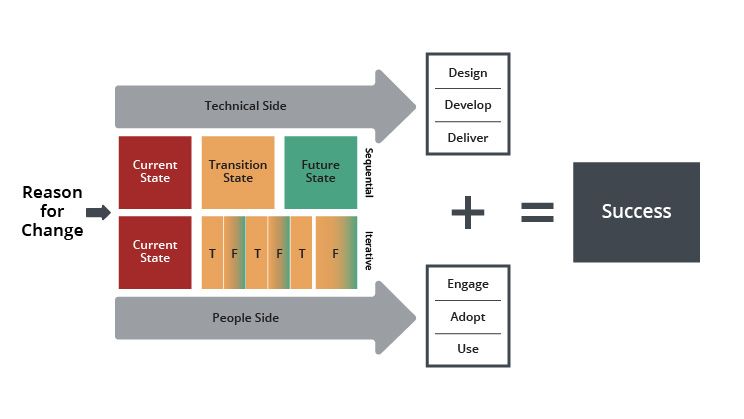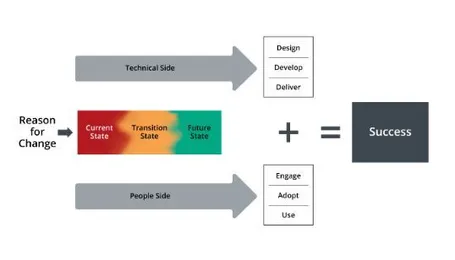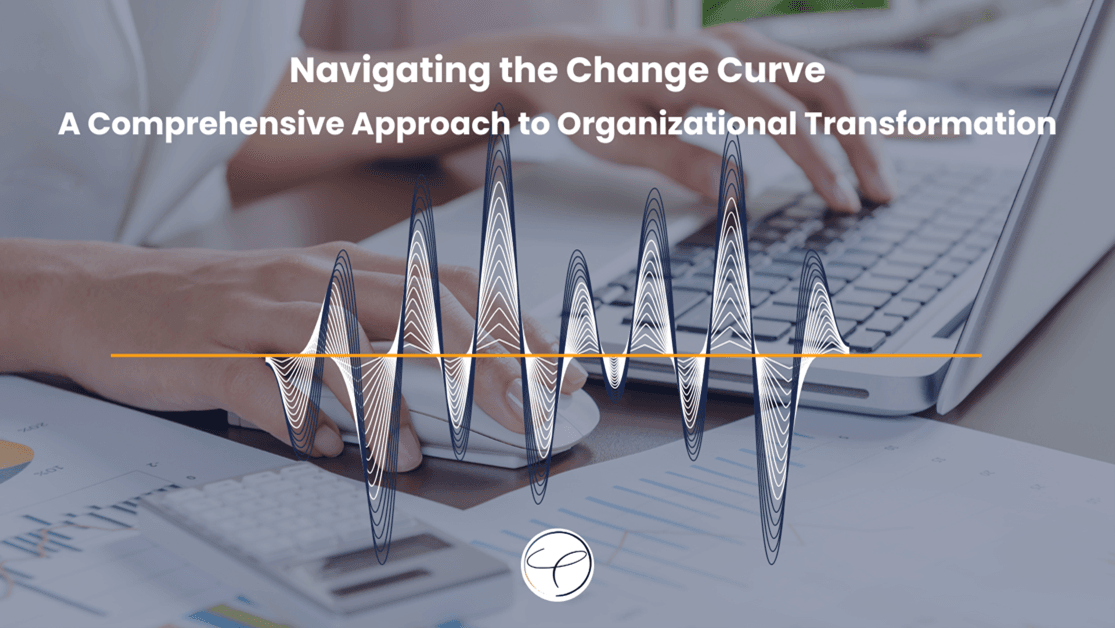

Understanding Change Management Fundamentals
Change Management is a comprehensive & intentional process that supports individuals who seek change from the early stages of formation all the way to successful change implementation.

The Importance of Change Management in Today's Business World
In today's rapidly changing organizational landscape, building agility is crucial for project success. As highlighted in PMI's whitepaper, implementing a trilateral practice can reshape your culture and business practices:
Rigorous Change Management to better adapt to shifting market conditions
More collaborative and robust Risk Management.
Increased use of standardized project, program, and portfolio practices.
By integrating these elements, you can enhance organizational agility and ensure sustained success.

Improve Project Outcomes
Project Management and Change Management are integral to the success of any transformation. When employing a best-practices approach, such as implementing a new ERP system, you can significantly enhance the likelihood of meeting your project objectives—by a substantial factor of 7X, as revealed by Prosci's 25 years of research reinforcing the Change Management value.

Change Management Increases The Likelihood Of Success
People who bring changes to their day-to-day work are the cornerstones of organizations. The objective is to embed the concept of change into individuals' mindsets and attitudes and equip them with tools and processes that facilitate the embrace and adoption of these changes.
Proper application of Change Management is pivotal in realizing desired outcomes and goals. Neglecting the human aspect can lead to substantial costs and risks, affecting project outcomes, timelines, budgets, and various other aspects of the initiative.
3 Levels of Change Management

Individual Change Management
Using Prosci’s ADKAR® Model (Awareness, Desire, Knowledge, Ability, and Reinforcement), Change Practitioners help individuals transition smoothly through change.

Project, Program or Initiative-based Change Management
Project Management and Change Management work symbiotically to achieve successful project outcomes, bridging the gap between Individual and Organizational Change Management.

Enterprise Change Management Capability
When Change Management becomes ingrained in an organization's culture, it leads to agile organizations that quickly respond to changing market dynamics, embrace strategic initiatives, and adopt them faster.
We Will Help You to Successfully Design And AchieveYour Transformation Vision
Your change portfolio will benefit from a structured people approach if it contains big ticket items like of the following:
Improving Agility
Cultural Transformation
Technology Implementations & Upgrades
Business Model Changes
Organizational Restructuring
Initial Public Offering (IPO readiness)
Mergers & Acquisitions (M&A)
New Market Entry
Go To Market Strategic changes
Operational process Implementation
Supply Chain Initiatives
Rapid External Changes
The Change Management Value Proposition
The primary objective of Change Management is to catalyze organizational results and outcomes by actively involving employees and motivating them to embrace a new way of working. This approach not only ensures project success but also creates a competitive advantage with minimal productivity impact.
For more information on the roles involved in overseeing change, refer to our article on Core Roles in Change Management.
LatestBlog Articles
The Critical Role of Sponsorship in Women Leadership
Sponsorship, not just mentorship, is key to advancing women in leadership roles by promoting visibility and career growth.
The Best Way toStay Change-Ready
Stay up-to-date with our latest blogs, upcoming webinars and courses.

























